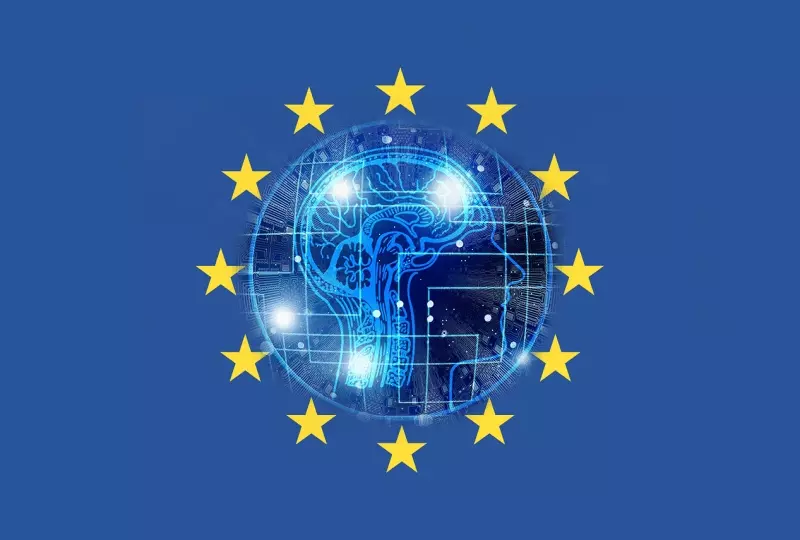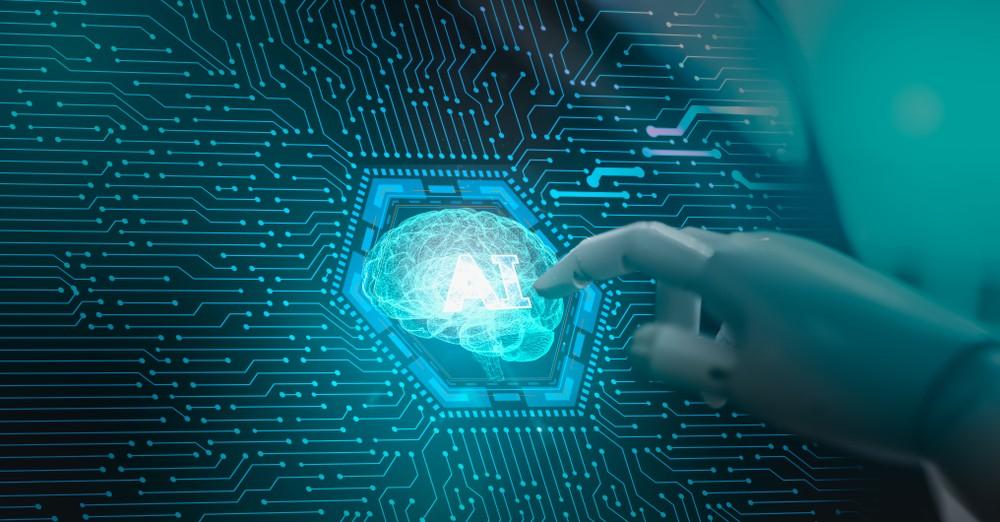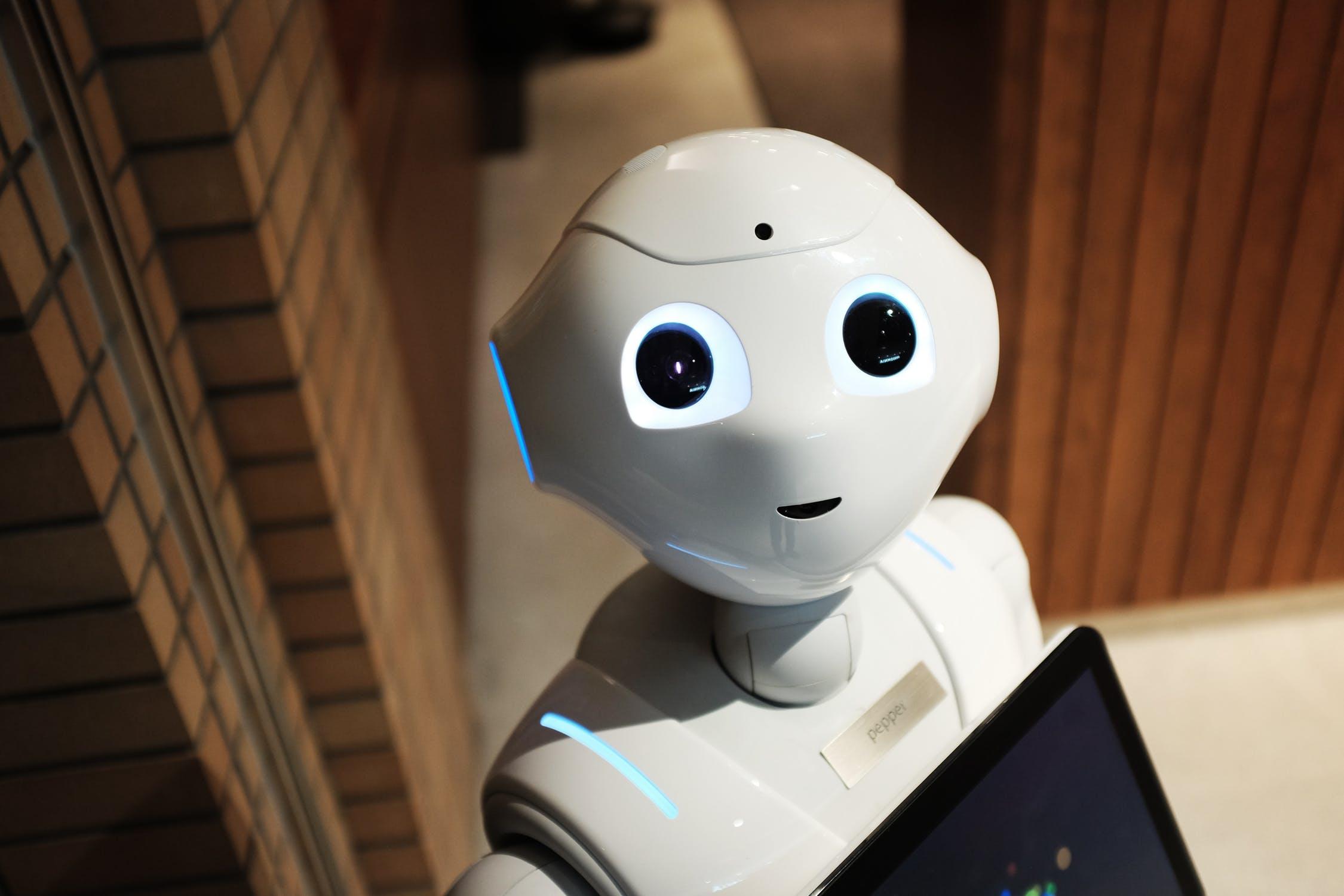Comments
- No comments found

It is not surprising that Europe, despite having a strong industrial base and leading AI research and talent, is dragging behind the US and China.
European countries are lagging behind in artificial intelligence due to the fragmentation of the EU’s research space and digital market, difficulties in attracting human capital and external investment, lack of commercial competitiveness and geopolitical inequalities.

Reading the ESPAS Ideas Paper Series, the Future of AI and Big Data, one could enjoy its deep insights, see the Supplement, as well as the honesty of the report as to the EU AI state of affairs.
It specifically reads: "The EU will lag behind in AI for some more time, because it has a more complicated task than others. On the other hand, with a resilient and free economy, a balanced regulatory system, an interested public, intact societies and world class research it will be well-placed in the medium term...
Some experts believe that the advances in machine learning are plateauing and that AI will only develop slowly and incrementally from now on. Others see much more change coming, even revolutionary jumps like super intelligent AIs that are able to be employed in many fields at the same time...
While many policy makers see the question of AGI as science fiction, huge investments are made into researching it. For example, DeepMind – developers of the Go-champion AI AlphaGo and bought by Google for 500 million USD – spends up to 200 million USD each year to come closer to that goal.OpenAI, funded with an Endowment of 1 billion USD, has the same goal. Since this research is not required to be transparent, it is likely that states such as the US, Chinese and probably others are also already working on such programmes. The biggest project by the European Union is the Human Brain Project, an effort to construct a virtual human brain, although this is not exactly the same as building an AGI...
Imagine, in 20 years, there will be a super intelligent, friendly, conscious AI which is a source of pride to the world and fulfils all our wishes. Would this be a paternalistic world? The difficult question goes to the core of the human condition: What are we to do, if we are not needed anymore? What then is the purpose of humanity?" Trends in Artificial Intelligence and Big Data. [ESPS Ideas Paper Series]
You must agree they are deep questions looking for fundamental studies. So, I decided to proceed deeper with a super intelligent, human-friendly and ethical AI as the fields of AI in which the EU could possibly become a world leader.
Reading the ESPAS Ideas Paper Series, the Future of AI and Big Data, one could enjoy its deep insights, see the Supplement, as well as the honesty of the report as to the EU AI state of affairs.
It specifically reads: "The EU will lag behind in AI for some more time, because it has a more complicated task than others. On the other hand, with a resilient and free economy, a balanced regulatory system, an interested public, intact societies and world class research it will be well-placed in the medium term...
Some experts believe that the advances in machine learning are plateauing and that AI will only develop slowly and incrementally from now on. Others see much more change coming, even revolutionary jumps like super intelligent AIs that are able to be employed in many fields at the same time...
While many policy makers see the question of AGI as science fiction, huge investments are made into researching it. For example, DeepMind – developers of the Go-champion AI AlphaGo and bought by Google for 500 million USD – spends up to 200 million USD each year to come closer to that goal.OpenAI, funded with an Endowment of 1 billion USD, has the same goal. Since this research is not required to be transparent, it is likely that states such as the US, Chinese and probably others are also already working on such programmes. The biggest project by the European Union is the Human Brain Project, an effort to construct a virtual human brain, although this is not exactly the same as building an AGI...
Imagine, in 20 years, there will be a super intelligent, friendly, conscious AI which is a source of pride to the world and fulfils all our wishes. Would this be a paternalistic world? The difficult question goes to the core of the human condition: What are we to do, if we are not needed anymore? What then is the purpose of humanity?" Trends in Artificial Intelligence and Big Data. [ESPS Ideas Paper Series]
You must agree they are deep questions looking for fundamental studies. So, I decided to proceed deeper with a super intelligent, human-friendly and ethical AI as the fields of AI in which the EU could possibly become a world leader.

I'd like to share my observations about some root causes, why the EU lags behind in AI and fundamental research and how to avoid It.
As the first move, having published about 15 books, I decided to compete for an ERC Advanced Grant [20 May to 31 August 2021] applying for the next round of funding, with the project details as follows: A Global Strategy for the Post Pandemic World: AI for Everybody and Everything (AI4EE0; Proposal acronym: AI4EE; Call: ERC-2021-ADG; Type of action: HORIZON-ERC;Topic: ERC-2021-ADG]
Next step, you need to estimate your best and worst chances of going to see the ERC website with its mission, promises, programs, historical data, just to start understanding why the EU is lagging behind China and the US not only in AI, but in fundamental science and technology.
It reads that "The European Research Council, set up by the European Union in 2007, is the premier European funding organisation for excellent frontier research.
The ERC's mission is to encourage the highest quality research in Europe through competitive funding and to support investigator-driven frontier research across all fields, on the basis of scientific excellence.
The overall ERC budget from 2021 to 2027 is more than €16 billion, as part of the Horizon Europe programme, under the responsibility of the European Commissioner for Innovation, Research, Culture, Education and Youth, Mariya Gabriel.
Candidates have to demonstrate the ground-breaking nature, ambition and feasibility of their scientific proposal. The projects must be hosted at institutions in the EU or associated countries".
"The European Research Council has today announced the winners of its 2020 Advanced Grants competition. The funding, worth in total €507 million, will go to 209 leading researchers across Europe. Their work is set to provide new insights into many subjects, such as the links between obesity and pancreatic cancer, threats from wildlife viruses, brain-inspired neural network computer chips, and new ways for architects to design the buildings of the future".
On careful reading, one is shocked with the ERC's loose classification, missing all the principal cross-, inter-, multi-, and trans-disciplinary fields, as AI, Cognitive Sciences, Cybernetics, Ecology, Technical Sciences:
Second, no real AI research was awarded a grant, and most winning projects are over specialized having little to do with "the ground-breaking nature, ambition and feasibility of their scientific proposal".
Just some of them:
What does it take to build an artificial virus?
Again, the host institutions are all the same, old universities and research centers, as National Center for Scientific Research (CNRS), with the UK (51 grants), Germany (40), France (22) and Netherlands (17) hosting the highest number of grants.
Innovative SMEs and small European countries have been badly discriminated against for public harm.
Now, however great your proposal might be, if you run a super-innovative company in a small country, you have ZERO chances to make your revolutionary contribution.
Beside social and economic inequalities, they practice a sort of geopolitical and academic inequalities.
To have better odds, you need to secure a proper host institution, host country, narrowing the scale and scope of my study to what is understandable by some narrow experts. Meantime,
The ERC aims to:
It is not surprising that Europe, despite having a strong industrial base and leading AI research and talent, is dragging behind the US and China. This state of affairs is especially due to the fragmentation of the EU’s research space and digital market, difficulties in attracting human capital and external investment, the lack of commercial competitiveness, geopolitical inequalities, or Big Europe mentality.
Nevertheless, Europe has all potential to become a leading global player on global AI, and the new European Commission has made AI a top priority for the next five years. By declaring AI a major strategic priority, member states and EU institutions are taking steps to advance AI leadership, rolling out national and EU-level AI strategy documents, boosting research and innovation, and exploring new regulatory approaches for managing the development and use of AI.

In a big sense, machine intelligence is suprahuman techno-mind, cybernetic super intelligence, or global intelligence.
Its practical definition as mimicking human brains, minds or intelligent behavior is naive and myopic, and guided by our anthropomorphic mentality and commercial interest.
Broadly, Real AI is about designing, developing and deploying real intelligence, without human biological limitations of power, memory, thinking and acting.
AI is not about narrow super intelligence, like today’s powerful ML/DL/NNs applications, mimicking human functions/capacities and data trained only for specific problems, such as object recognition, self-driving or strategic games playing.
Here AI-based systems could go anything, purely software-based (e.g., conversational assistants, image analysis software, search engines, speech and face recognition systems) or hardware devices (e.g., autonomous cars, drones, medical devices, advanced robots, or LAWs).
In reality, AI is not about simulating cognitive capacities/functions/capabilities/skills, as defined by (Encyclopaedia Britannica). “Artificial Intelligence (AI) is a branch of computer science referring to “the ability of a digital computer or computer-controlled robot to perform tasks commonly associated with intelligent beings. The term is frequently applied to the project of developing systems endowed with the intellectual processes characteristic of humans, such as the ability to reason, discover meaning, generalize, or learn from past experience”.
What differentiates Real AI from other digital technologies is that it is set to map/represent/compute/model/understand, learn and interact with ANY environments in order to solve general problems, take autonomous decisions and rational actions.
AI, machine learning and deep learning, big data analytics and neural networks, machine vision and NLP, are often used interchangeably, but this is conceptually wrong, with all the logical and practical consequences.
Ultimately, AI is about universal super intelligence, science/model/data trained only for any problems, such as climate change, pandemics, quantum computing or gravity or theory of everything.
So, Global AI is to demonstrate godly features, such as omnipotence and omniscience, with the power to create a new universe, smart, intelligent and digital, easily manipulating and controlling matter, energy and information.
AI is about putting "God in the Machine", instead of deus ex machina, thus innovating a new techno-religion of AI God entities. The AI Trinity involves Reality, Data and Mind, in which the three parts, AI hardware, AI software, AI mindware, are distinct, yet are one "substance, essence or nature".

Political aspect: AI is biased, difficult to scrutinise and to estimate its power, and – more so when embodied in autonomous systems – potentially dangerous. Policy responses are accountability, transparency, safety and control, and public debate. These should be based on ethics. AI will lead to better governance, more debate, new policy actors and processes, a contest over centralisation, and the EU catching up. AI might progress in a revolutionary or evolutionary mode, lead to new political divisions, and change democracy. AI might be misused as a “superior orders” defence. What if data analysis changes or replaces democracy?
Socio-economic aspect: Big Data is changing the role of data, is often dependent on sensitive information, is handicapped in the short term but better in the long term due to data protection, and its industry is in danger of monopolisation. AI lowers the cost of prediction, replaces human prediction and human labour and causes social problems, increased nudging and misuse of the term AI. AI will lead to more data, economic growth and more job market distortions. AI might lead to new industry giants, a request for more privacy, new state solutions, yet unknown jobs, AI taxes and increased state ownership. What if new economic ideologies emerge, singularity strikes or AI monopolies are broken up?
Geopolitical aspect: AI is increasing the power competition between the US and China and gives both more power. Europe tries to create businesses and find its strengths. All are investing in military solutions and the west has a slight disadvantage here. AI will lead to a shakeup of the international system, hierarchies and networks becoming more powerful, and real-life deception being more difficult. AI might lead to China becoming the most powerful power overall and in AI. The future of AI R&D and the success of Europe’s broad approach is uncertain. What if there are two digital worlds, China becomes a data-privacy defender, and artificial intelligence (AI) becomes targets?
Technological aspect: Super intelligent AI is invested in and researched, challenged by philosophy, and possible this century. It might imitate the brain, be assembled together or be designed by other AIs. An intelligence explosion or a conscious AI could be possible, and might be the last invention of humanity. It would require long term funding, need to overcome many technical hurdles, be dangerous due to its intellect, possibly be contained with collective intelligence, and maybe have humans lose their jobs, safety or purpose. Key questions for policy-makers: What makes European AI distinctive? What areas can and should we prioritise, if any? What should be regulated? How could and should the EU foster AI development, avoid monopolisation, provide data pools, use high data standards, link researchers and corporations, balance fundamental with applied AI research and private with state funding, boost applications, compensate for job loss, keep AIs away from dangerous actors, support EU foreign policy (neighbourhood, FPI, democracy and human rights, aid and development, economic freedom), improve our lives with AI, change the geopolitical AI race, deal with autonomous weapons and super intelligent AI and organise Foresight?
Leave your comments
Post comment as a guest